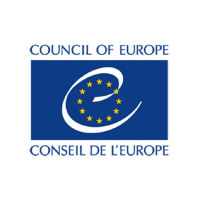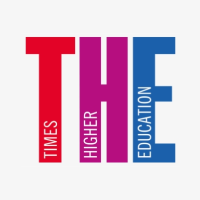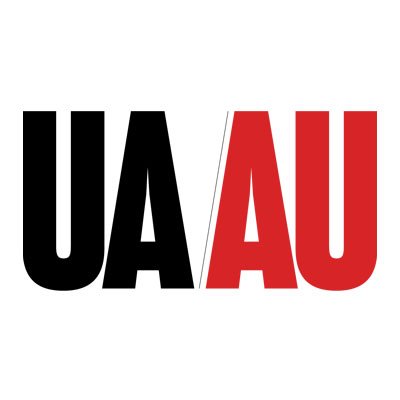Institutions of Higher Education (HEIs) are entrusted by society with responsibility for the creation, dissemination, and preservation of knowledge. The purpose of HEIs is to provide quality education and each member of the community should aspire to maintain the highest professional standards to assure that students are well-prepared for life-long learning.

"Higher education cannot be of high quality, it cannot promote societal values, and it cannot educate the next generations unless all actors in education themselves practice academic integrity. Higher education’s credibility depends on integrity…. quality education will only be achieved, and corruption effectively addressed, if all relevant sectors of society commit fully to fundamental positive ethical principles." —Council of Europe Newsroom, 7 December 2021
Inevitably, academic misconduct will occur despite all intents and purposes. The literature utilizes the terms ‘academic cheating’, ‘academic dishonesty’, ‘academic impropriety’, ‘Academic Integrity (AI) violations’, ‘academic misconduct’, ‘cheating’, ‘cheating behaviors’, ‘disintegrity’, ‘misrepresentation’ and ‘rule-breaking’. Such practices remain persistent, pervasive, and perennial. In some contexts, rampant. Approaches that focus on eradication rather than minimization, however, would seem impractical, if not unreachable.

"Given the potential consequences of academic dishonesty, it is imperative that institutions turn this vicious cycle into a virtuous circle. Instead of focusing solely on catching a small number of determined students who cheat, institutions should focus on creating systems (coupled with fair-but-firm enforcement) that encourage academic integrity." —Times Higher Education, 19 August 2022
The most effective approach to reducing cheating is through a combination of: (a) teaching about academic integrity; and (b) designing assessments that lessen opportunities. Findings regarding the role of summative assessment indicate that there are no tasks that can, in themselves, entirely prevent cheating among students. Nevertheless, ill-defined assignments that are descriptive rather than analytical in nature afford greater likelihood of disintegrity than highly specific and thought-provoking assignments. For example, tasks that challenge students to answer open-ended questions about their own learning and thus prompts them to integrate specific materials to justify mastery of course/program content.
| | Prevention and Detection of Academic Misconduct in Higher Education | Prof. Donna Velliaris (Independent Scholar, Singapore)
©2019 | 324 pgs. | EISBN13: 9781522575320 | - Receive 10% Discount on All IGI Global published Book, Chapter, and Article Products through the Online Bookstore
- Suitable for Educators, Administrators, Academicians, & Researchers
- Covers Topics such as Academic Policing, Cyber Cheating, & Ethical Behavior
- Excellent Addition to Your Institution's Library
|
| |
|
|
What HEIs can hope for is a reduction in the number of incidents and a clear desire for students to
not consider unethical practices as part of their repertoire. With that in mind, there are questions for faculty to probe as they (re)design HE assessment tasks. Questions include, but are not limited to:
- Does the course allow opportunities for students to show the extent of their learning in this particular field?
- In what ways is it ensured that assessment is connected to a real-life application and is owned by the student?
- What type of knowledge will be assessed: reasoning, memory, or process? How do my assessments help students learn the difficult concepts in my course? Is this subject primarily theoretical, practical, or a combination?
- In what ways is it ensured that assessment is matched to subject description and outcomes, including graduate attributes and/or any professional standards?
- What do learners need to be able to do in practice when they eventually enter the industry/profession? Are there any tasks that will mirror future professional assessment activities and are there important changes or controversies occurring within the field?
- Can there be collaboration with business, community groups, government or industry, to identify: a) necessary skills; b) projects that could be packaged as authentic assessments; or c) work-based opportunities for assessment?
- How can I evaluate my methods (i.e., student feedback, peer feedback)?
View Titles led by Dr. Velliaris
Indeed, the (re)design of existing assessments is likely to be onerous, yet carefully contemplating how one is going to assess students is an invaluable investment of course/program planning time. Pointedly, not setting the same/similar task(s) semester-after-semester and year-after-year by making small but powerful modifications would be indispensable. Significantly, not recycling the same questions/assignments within a three-year period, as students may have seen and studied past papers within this time frame.

"Students with integrity don’t simply avoid academic misconduct. Rather, they engage in behaviours that embody the numerous virtues of integrity. They take responsibility by going to class and studying for exams; they treat a topic fairly by conducting a full literature search; they trust their peers when working on collaborative projects; they have the courage to follow the trajectory of their thinking; and when it comes to writing, they have respect for their reader." —University Affairs (UA), 9 November 2021
As actions that are considered dishonest broadens, so must the strategies to address them. Local, national and international communities cannot and will not be globally competitive if they raise a generation of under-educated cheaters. This is especially pertinent in relation to courses/programs that lead to professional status. Cheating will be a prickly and controversial issue for years to come, and the more one learns about it, the more one recognizes that further and periodic scrutiny is essential.
About Dr. Donna Velliaris
Donna M. Velliaris holds three Graduate Certificates: (1) Australian Studies; (2) Religious Education; and (3) School Counselling, two Graduate Diplomas: (1) Secondary Education; and (2) Language and Literacy Education, as well as three Master’s degrees: (1) Educational Sociology; (2) Studies of Asia; and (3) Special Education. In 2010, Dr Velliaris graduated with a PhD in Education from the University of Adelaide focused on the social/educational ecological development of school-aged transnational students in Tokyo, Japan. Her primary research interests include: human ecology; Third Culture Kids (TCKs); schools as cultural systems; and study abroad.
To date, Dr Velliaris has six book publications with IGI Global. Additionally, she has almost 40 book chapters to her name, such as: Academic reflections: Disciplinary acculturation and the first-year pathway experience in Australia [Garnet]; Conceptualizing four ecological influences on contemporary ‘Third Culture Kids’ [Palgrave Macmillan]; Culturally responsive pathway pedagogues: Respecting the intricacies of student diversity in the classroom [IGI Global]; The other side of the student story: Listening to the voice of the parent [Sense]; and Metaphors for transnational students: A moving experience [Cambridge Scholars].
About IGI Global
Founded in 1988 and headquartered in Hershey, Pennsylvania, USA with a subsidiary office (IGI Science and Technology, Ltd.), operating out of Beijing, China, IGI Global is a leading medium-sized independent academic publisher of international scientific research. They are committed to facilitating the discovery of pioneering research that enhances and expands the body of knowledge available to the research community through traditional and open access publishing workflows. Working in close collaboration with expert researchers and professionals from leading institutions, IGI Global publishes quality peer-reviewed content across 350+ topics in 11 core subject areas, including business, computer science, education, engineering, healthcare, social sciences, and more. With over 150,000+ industry-leading researchers and experts worldwide contributing to IGI Global’s publications, they ensure that each contains the most emerging and timeliest research. Learn more about IGI Global here.
Newsroom Contact
Emma Baronak
(717) 533-8845 ext. 183
ebaronak@igi-global.com
www.igi-global.com
Disclaimer: The opinions expressed in this article are the author’s own and do not reflect the views of IGI Global.